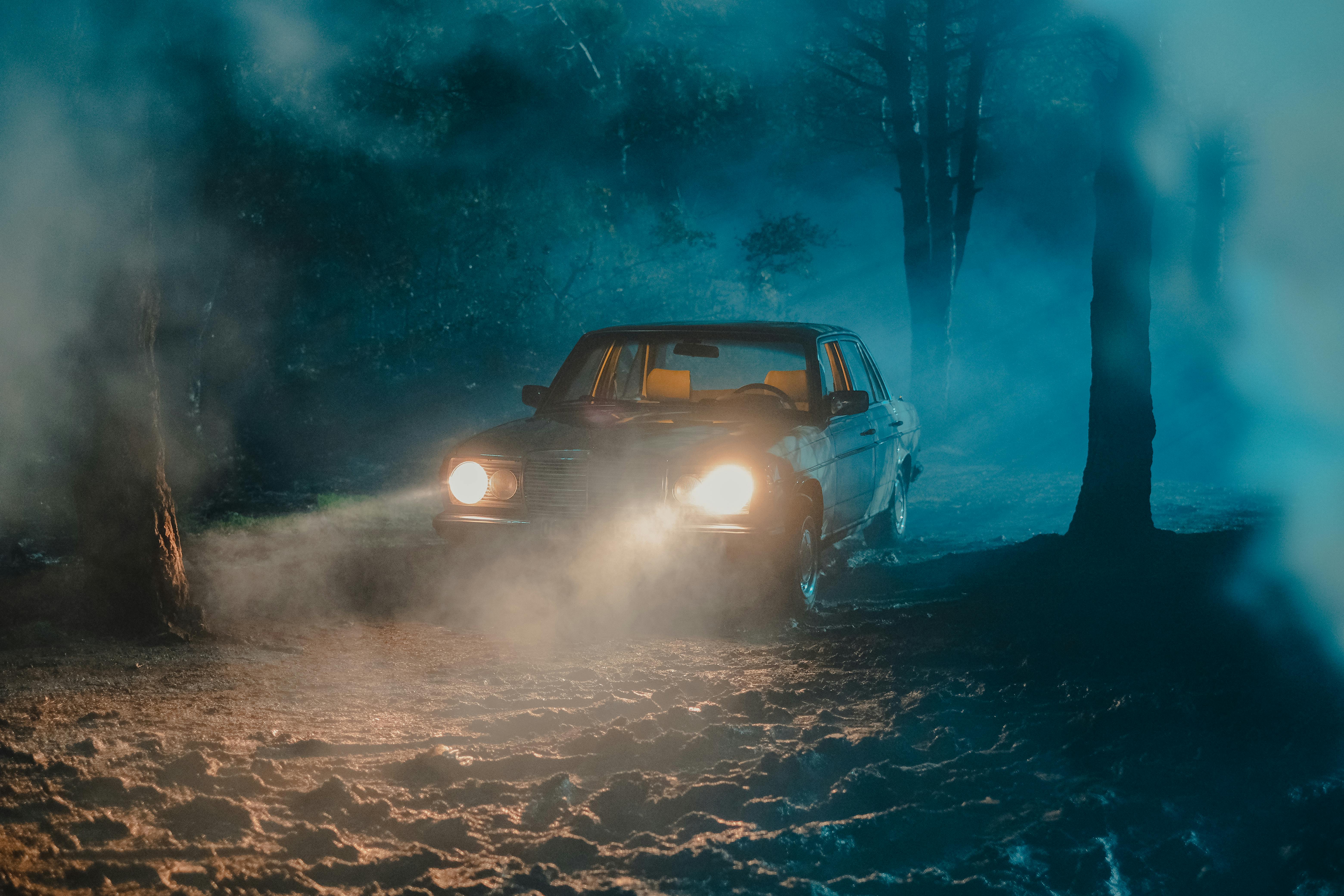
Great Fiction: Hick by Andrea Portes
Hick by Andrea Doors (2007)
Of course, the arrival of the seeker has changed the dynamics of the trio of perspectives that come into play in the experience of a work of fiction. It has drastically changed the reader’s perspective because it puts clarification on people, places, things, and situations at hand in a matter of seconds; Today you can read a novel with many allusions and verify names with full understanding in about half the time it took before the web was here. The author’s perspective has changed because of the other side of the same problem: it has opened access to staggering amounts of information for inclusion in a work, thus making infinitely more referents available than were possible before. And the way fictional characters behave has changed, too: the latest and most pervasive technology available in society usually makes its way into novels and stories right away (think TV or cars). These may seem like trivial observations, and in a way they are. That makes it all the more surprising to find a novel, written in the Internet age, in which none of the three things I just mentioned is applicable. Hick it could have been written and taken place just as easily in 1957 as in 2007. There is nothing to look for here, and the characters certainly do not do or say anything that requires investigation. In a sense, this is the most challenging type of novel because everyone in the trio of perspectives – author, reader, and characters – must draw on their own resources, their own inner vigilance, to make it work. The book creates space roads within our hearts that are as big as the Nebraska and Wyoming highways on which it is set.
The history of the picaresque novel, from Lazarillo de Tormes to The Bushwhacked piano, teaches us a fundamental lesson: the story often has roots that come from deep within the author’s life. Doors’ book follows that general rule. In a Q&A press release, he was asked, “Who is the main character that Luli McMullen is based on?” The answer, “The main character is absolutely based on me as a teenager,” is pretty unequivocal. And what main character she is, although I can say that with a bit of cheating in the background. I attended a reading that Portes gave at a Greenwich Village bookstore, and was amazed when he read the book in character, as an actress auditioning for a role. The adventures of Luli McMullen, narrated by herself, slowly evolve into a way of perceiving the behavior of others and the motivation behind that behavior, which leaves the essential soul intact, badly bruised. Damaged, jaded, intact goal. The first chapter and the last chapter end with the expression of the exact same thought – “I’m going to grab something and blow it up” – and this shows that optimistic self-confidence is present in Luli both before and after the heinous main episode. the events of the story relax. Various reviews of this book describe it as a depressing and depressing story, which in my opinion it is not. It is more of an affirmation of the POSSIBILITY of the spirit.
The plot is quite simple. Thirteen-year-old Luli has dysfunctional parents and problem drinkers who don’t treat her well. In an attempt to make a better life for herself, she goes to Las Vegas, runs away, and meets a group of people who are not much better than her mom and dad. Portes makes use of a fairly familiar catalog of devices: the abused child, the alcoholic parents, the killer’s time on the road, the bizarre bizarre in and out of the episodes, the sexual predators. However, when I read the book a second and then a third time, a pattern of signifiers, or codes, began to emerge that give the book the kind of spark of authenticity it must have to differentiate itself from the eleven hundred. others who relate these types of people in these types of situations (reading Portes with Raymond Carver, for example, could show you how overrated an author was).
When I say “significant” I mean bodily things or abstract concepts of thought that Luli interprets in the same way throughout history. The first one that stands out is a series of temporal references that you make, both to the past and to the future, that indicate that you might feel that your life at this moment is simply a temporary way station between a deep mystical past and something very much. A better future. For example, he has the following meditation on Clement, one of the few truly decent people he meets in his travels: “I look at Clement and he looks at me, and it is as if he knew him eight million years ago before the beginning of the weather”. … “Similarly, when describing a troubled couple, she says” He and Glenda seem to have some private moment of unspoken meaning dating back to before I was born. “These solipsistic remarks about the past are reminiscent of Wittgenstein:” Tea the world is me world. “And just as these inexplicable and inexplicable past events only contain an enigma, thinking about the future brings hope and curiosity:
“Tomorrow I will be softer.”
“I press my head to the side against the window, looking at the black sky and the bunny ears in front of me, wondering what and who will break my heart.”
“She’s one of those people you don’t meet until something happens, something big. And I wonder, as I look at her wheat-spun hair in the golden light, what, exactly, is that something.”
A second signifier comes in the form of food or, more precisely, lack of food or, even more precisely, creative and fun ways of thinking and describing the lack of adequate nutrition; This is a device that Portes uses to emphasize Luli’s awareness of her and her family’s low social status. Brian Tracy once said that food is like money in the sense that when you have enough, you rarely think about it, but if you don’t have enough, you don’t think about anything else. Luli is an excellent example of that observation. We will choose some samples of Luli’s reflections on food. There are plenty of others to find too, but here are a few:
“… a girl just can’t live off popsicles the way she can live off Snickers …”
“If you’re still hungry, you can have a blue frosting on graham crackers for dessert. There is also the option, sometimes, of a sugar sandwich, which consists of two slices of white bread, buttered and dipped in white sugar.”
“I open the refrigerator to get something to eat, but there is nothing but brown peaches and a half-finished jar of gravy.”
“So that’s it. I make up my mind to find a sugar daddy who will flatter me and feed me when I’m hungry, not just sugar sandwiches but rich people’s food.”
And so. The keenness of his awareness of his low socioeconomic status is also reflected in numerous comments about money, rich people, the “world of wealthy people”, and so on. The third main signifier is something called “whirlpool” or “whirlpool” which denotes a complicated type of sexual relationship between men and women, a kind of frenzied and uncontrolled desire on the part of certain men and the recognition, on the part of women, that this it’s a powerful weapon that they can use to manipulate guys (who don’t exactly care about the best interests of women either, this is some kind of war). Very early in the book, a twenty-eight-year-old sleazeball is trying to win over Luli, who is thirteen. She says
“I squirm and look at him like his marbles are lost. That thing spinning in his eyes, that thing, like it wants to jump into my body and devour me from the inside out, makes it like it could ask for whatever my little heart wanted in this second and I would have to ”.
Later when he meets the disgusting Eddie Keezer, almost the first thought he has is “I can tell I can make his eyes swirl and that’s pretty much all I want to do.” She is eager to use this new knowledge; However, in his harsh innocence, he doesn’t realize that performing the whirlpool can get him what he wants in some way, but in other ways, it can only get him in trouble. Again, a little later: “I’m going to make her eyes swirl if that kills me.” Later, when talking about Glenda, another bandit he meets on the road, he has the exact thought that his previous attacker had: “… it so happens that when I look at Glenda, when I listen to Glenda, I understand this by feeling in my entrails as if he wanted to jump into her … “And so on.
This is a simple outline, but just to recap: there are three important codes we can look for to help us understand the novel holistically. The codes refer to time, food and money, and eddies. These three form a large part of the way Luli thinks and perceives her universe. Another thing to look for, perhaps not as frequent as the others, but still noticeable, is the psychological disposition towards danger or trouble, the tendency to like to hang out with negative and vagrant people. In the interview I referred to earlier, Doors responded to a question with “I love trouble. I really love it.” Luli says things like “But there is also a side of me that will never look away from a dead bird or a car chase or an Alibi robbery at 2am.” Portes told me that the root of this predisposition probably has something to do with moving around a lot when he was young, which makes perfect sense, and that he has lost this inclination as he gets older.
I think it’s also important to quickly mention the way certain parts of the text silently refer to or foreshadow others, which makes reading the book fun because it sharpens the saw to our alertness. At first, a weapon is described as “cockroach color”, a very strange description, but much later cockroaches come into play in the story in surprising ways. Also at the beginning, someone’s body is described as a “question mark”, a DEVICE that appears two or three more times later, a sign perhaps of the author’s appreciation of the language. And there are a number of brilliant individual sentences that should be framed and hung at the Smithsonian, for example, “She keeps adjusting and readjusting, as if true happiness is found somewhere in the position of her belt.”
To conclude, I want to make a brief comment in a kind of new historicism and a quick comment on some reflexivities of the text. As for the first, Wright Morris’s book of photographs called God’s country and my people is a fascinating collection of shots of the Nebraska plains that provides a wonderful setting for curious readers who like to read fiction versus non-fiction. Also the memories of the road called A sense of place: listening to Americans by the great journalist David Lamb can serve the same purpose with regard to Hick. Regarding the second, there are some points in the book where the author winks at us directly, for example channeling Truman Capote – in fact the same phrase “in cold blood” is used – and the film Bonnie and clyde – here indirectly called The Actress and the Thief. There is even an episode that recalls some of Thomas Hardy’s despicable behaviors. The Mayor of Casterbridge.
I think Hick It is extraordinary not only because it gives a thirteen-year-old a voice with accuracy and complete credibility, but also because it offers readers some important lessons on how to experience a novel. It makes us react – laugh, cry, get angry – and never breeds indifference. The success you are achieving in sales and advertising is in my opinion very well deserved.


No Comment